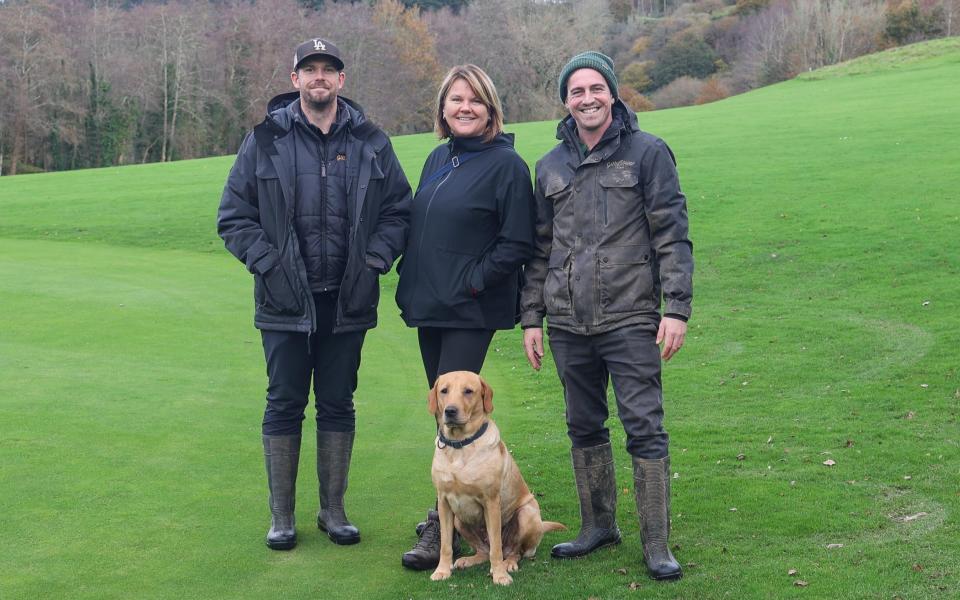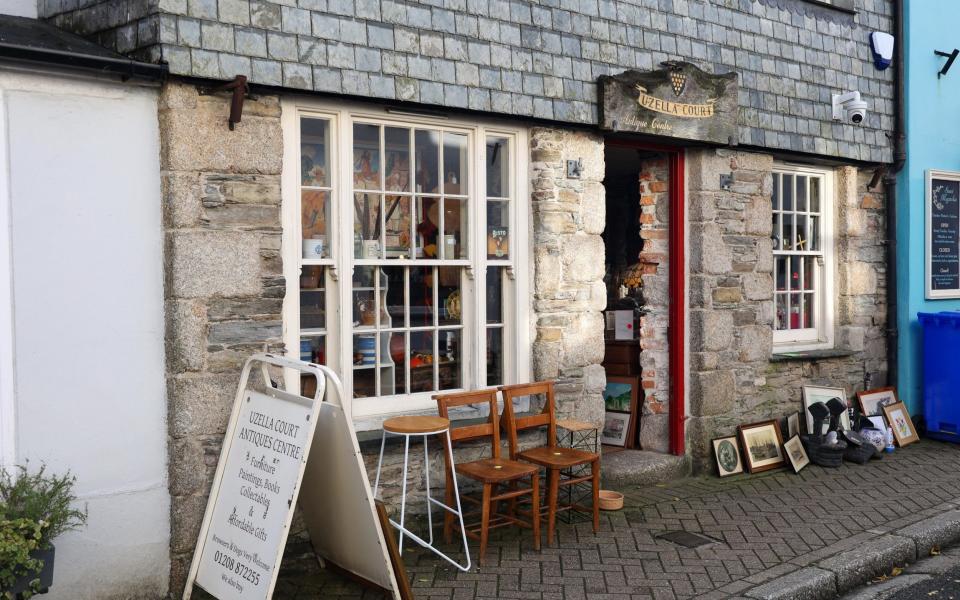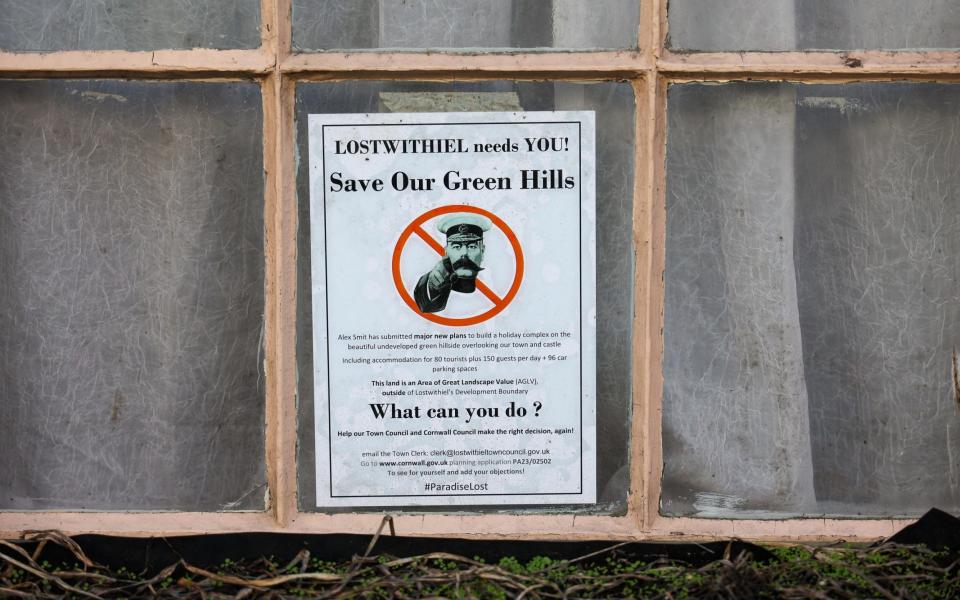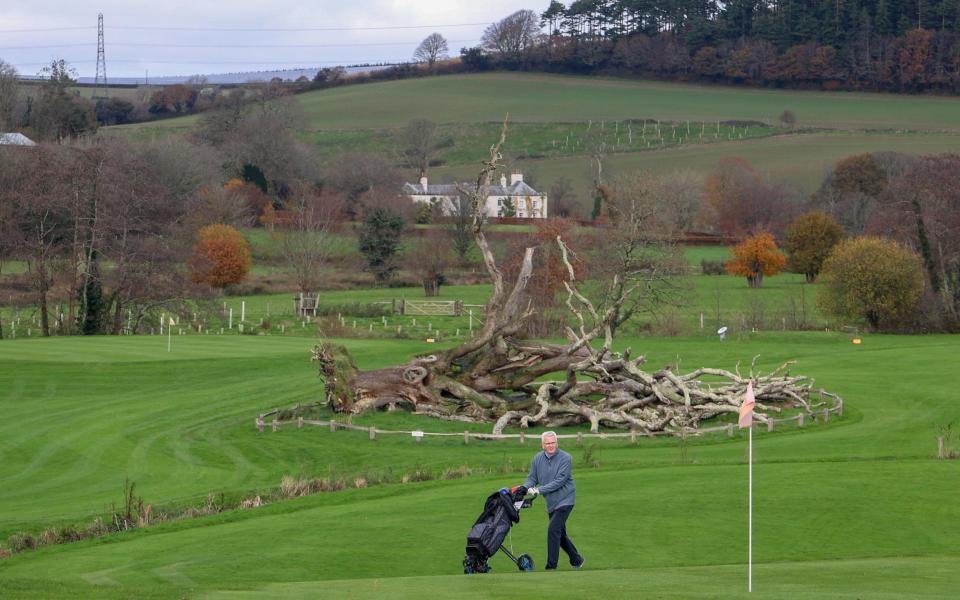Tucked away in the upper reaches of the Fowey Valley, the small town of Lostwithiel looks a picture of serenity: a church tower rising above a flag-strewn main street, a tranquil river babbling between the arches of a pretty medieval bridge, and steep wooded hills. hills on all sides, with the crumbling curtain wall of Restormel Castle just visible over the rooftops.
It’s a vision of jolly old England with a Cornish twist, but beneath the idyllic surface this is a town on the edge. The hot-button topic of planning and tourism, an ongoing point of contention in Cornwall, has caused a deep division in the community – one that has led to a two-year campaign of vitriol, vandalism and threats of violence.
The roots of the dispute lie on the outskirts of the city. Gillyflower Farm is a large and ambitious project being carried out under the auspices of Sir Tim Smit, the Dutch-born businessman who founded two of Cornwall’s most popular attractions: the Eden Project and the Lost Gardens of Heligan.


After Smit and his son Alex acquired a derelict golf course on the edge of Lostwithiel four years ago, they laid out their grand plan: the golf greens would be reduced in size to make way for orchards; there would be a new clubhouse, as well as a café, cooking school and an education center for agriculture and horticulture students, in addition to 19 holiday lodges.
The response was swift and uncompromising. A group of locals formed a campaign group to oppose the plans, claiming Tim Smit was out to “turn our beloved landscape into a tourist attraction and make a few more million from land he bought for a price”. They collected more than 300 objections, arguing that the proposed development would damage a protected landscape, and in April last year the application was rejected.
Now a new and amended planning application has been submitted, but tensions are still bubbling beneath the surface as residents await the final decision.
“The city has lost its way,” said one shopkeeper I spoke with. “There have been threats, stickers have been put on our windows. A [supporter of Gillyflower Farm] had put a note in the letterbox with the text ‘You better stop immediately, otherwise this will be a petrol bomb next time’.


“The truth is we need something like Gillyflower or the city will die. Not enough people come here these days.”
When Lostwithiel is in trouble, he hides it well. The main thoroughfare, Fore Street, exudes an affluent atmosphere not often found in Cornwall’s shopping streets these days. There are pubs and cafes, antique shops, a butcher’s shop and a few gift shops – almost all of them are independent and seem to be doing well, although I noticed that hardly anyone was shopping on the chilly Tuesday morning of my visit.
“The only reason most of us are still going is because we own the buildings – if we were paying rent, most of us would have gone under years ago,” another trader told me. He too was in favor of the development of Gillyflower Farm, but had tried as much as possible to remove himself from the disagreement.
“It’s very toxic, although I don’t really know why. I think it would attract people to the city and do a lot of good for the locals,” he added.
I spoke with a number of other entrepreneurs that morning and most agreed that the Smits’ proposals could only be good for the city. However, no one wanted to be named for fear of reprisals if they spoke out. The refrain was always the same: “I don’t want to end up with a rock through my window.”


That afternoon I made the short trip to Gillyflower Farm to meet Alex Smit, who was spearheading the project. As we walked through orchards of young apple trees, he explained the vision he and his father shared for the area, admitting that the strength and ferocity of the opposition he had encountered had overwhelmed him.
“I am regularly asked whether, given what I know now, I would start this project again. The answer is a resounding ‘yes’. I’m glad I can acknowledge my mistakes and learn from them, but my mistakes don’t make this a bad project.”
To date, the Gillyflower team has planted more than 2,500 fruit trees, almost all of them old varieties. The aim is to experiment with sustainable farming methods and invent new ways to produce fruit in a profitable but environmentally friendly way.
There is a potager where similar trials are being carried out with vegetable production, while other members of his team are exploring ways to manage the nine-hole golf course while supporting biodiversity. Alex is confident the findings will be shared with farming and golfing associations respectively, while Gillyflower Farm products will go to local businesses.


“We are not Russian oligarchs – we find this exciting and important, but we cannot afford to grow a project of this size without a sustainable revenue stream to support it. We need the lodges and clubhouse to make the rest viable. It was never about profit.”
Alex and his team have borne the brunt of the wrath of Gillyflower Farm’s opponents: some of them have been accosted on the streets or in the town’s pubs; others had their cars spat on. Even those who work at Heligan and the Eden Project are reluctant to come to Lostwithiel in the current climate for fear of being seen as guilty by association. Yet they are steadfast in their determination to see the project through to completion.
“I have lived in Cornwall most of my life and here in Lostwithiel for 13 years. It is my local city and I am confident that this project will make a positive contribution to the community and the landscape in which it is now located,” said Alex Smit.
“I know I won’t convince everyone who is against the project to change their minds, but that’s part of it and it shouldn’t be a reason not to do something that you really think is worth fighting for .”